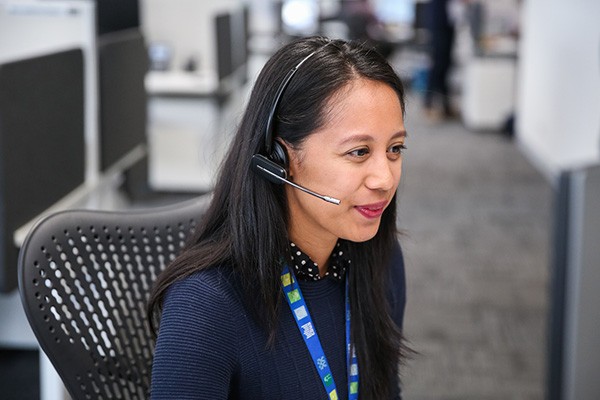We're here to help
If you suspect that your identity has been compromised, please let us know immediately.
Contact usScammers can target you online, by phone or email. Some of the ways you can protect your identity include:
Visit Moneysmart for more information on how to protect yourself against financial scammers.
Do your research when looking for a financial adviser.
Check the Money Smart website to learn about an adviser’s qualifications and to see if they’ve been banned or disqualified from giving advice. Check Moneysmart's financial adviser register.
Cbus Advice Services can refer you to an accredited financial planner who meets strict professional qualification and service criteria as set by Cbus and the Financial Advice Association of Australia Limited (FAAA).
It is also important to keep track of any authority you have provided for another person or third party to access your account information.
Contact us or visit Advice services.
Beware of SMSF scams
If someone offers to withdraw your super or move it to a self-managed super fund (SMSF), it could be a scam. The superannuation industry and the regulator, Australian Securities and Investment Commission (ASIC) have noticed a rise in scams targeting individuals into establishing self-managed superannuation funds (SMSFs).
Watch out for emails or calls requesting your personal or account details. Scammers may pretend to be a company you know, like your super fund or a financial advisor firm. They may then use your personal identification documentation and information to transfer your super into an account they can access, like a fake SMSF or set up a legitimate SMSF, but transfer the money into a bank account controlled by them.
We have noted that our members are being cold called by seemingly ‘legitimate’ financial advisers. Some members have a long interaction with these scammers and SMSFs are properly established with the SMSF regulator (the Australian Taxation Office). Once the superannuation funds are transferred into the SMSF bank account, the ‘financial advisers’ withdraw the funds and are unreachable. Some of the websites created by these scammers appear to be genuine. Check the ASIC website to ensure the financial advisor is listed on the Financial Advisers Register.
In some scams, the application forms received by funds are not the forms completed by the members. Other instances involve the money being transferred to a ‘different’ bank account opened by the scammer (with or without the knowledge of the individual). These secondary bank accounts (which are controlled by the scammers) are easy to establish since scammers now have the relevant identification documents provided by the members to help set up the SMSF.
Scammers will try to convince you that they can help you to get your super early. Knowing when you can legally get your super protects you from these kinds of scams. You can contact Cbus’ Financial Advice team for information about your Cbus account. Ensure Cbus has your correct mobile number, email and postal address. This will help us contact you if there's any suspicious activity on your account. Regularly check your super balance by logging into your account. If something doesn't look right, Contact us immediately. It may be difficult to recover funds lost in a scam as time passes.
The superannuation industry and its members is also targeted by scammers in a different way. When it seems too good to be true, contact us to have a chat about your account.
What can you do to keep your super safe
What to do if you are scammed
For more information on SMSF scams

If you suspect that your identity has been compromised, please let us know immediately.
Contact us